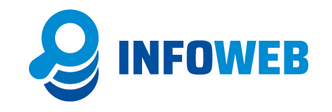Why Your Business Needs HRMS Software?

In the rapidly evolving business landscape, companies are increasingly turning to HRMS (Human Resource Management System) software to streamline their human resource operations. This comprehensive technology solution offers a myriad of benefits that can significantly improve efficiency, productivity, and employee satisfaction within an organization. In this article, we will explore the reasons why your business should consider implementing HRMS software.
Reasons why Your Business Needs HRMS Software
Centralized Employee Data Management
A primary advantage of HRMS software is its ability to centralize employee data. Instead of maintaining various physical files or multiple digital spreadsheets, all pertinent information, such as employee profiles, attendance records, leave balances, performance evaluations, and payroll details, can be securely stored and accessed from a single platform. This streamlines data management and eliminates the risk of data redundancy, ensuring that accurate and up-to-date information is readily available to HR personnel and authorized stakeholders.
Time and Attendance Tracking
Tracking employee performance and progress can be a time-consuming and error-prone task. HRMS software offers automated time and attendance tracking, which allows employees to clock in and out digitally. This feature not only ensures accurate recording but also simplifies payroll processing, as hours worked are automatically calculated. Additionally, it enables businesses to identify patterns in attendance and absenteeism, enabling better workforce planning and improved accountability.
Streamlined Recruitment Process
HRMS software can significantly streamline the recruitment process by automating various stages, from job posting and candidate screening to interview scheduling and applicant tracking. Recruiters can efficiently manage candidate databases, review resumes, and communicate with applicants through the system. This streamlines the entire process, reduces the time-to-hire, and helps businesses secure top talent quickly. Moreover, the software can integrate with various job portals and social media platforms, broadening the reach of job postings and increasing the chances of attracting the right candidates.
Performance Management and Training
An effective HRMS system enables seamless performance management by providing a platform for setting and tracking employee goals, conducting regular evaluations, and identifying areas for improvement. Moreover, it can facilitate the creation and delivery of training programs to enhance employee productivity. The data-driven insights generated by the software help managers make informed decisions about promotions, training needs, and talent development, fostering a culture of continuous improvement and employee engagement.
Compliance and Reporting
Compliance with employment laws and regulations is a critical aspect of HR management. HRMS software can assist businesses in maintaining compliance by automating the tracking of various legal requirements, such as work hours, leaves, and employee records. Additionally, the software can generate comprehensive reports that consolidate essential HR data, facilitating easy audits and compliance checks. By reducing the risk of non-compliance, businesses can avoid costly fines and legal consequences while ensuring a fair and transparent work environment.
Conclusion
HRMS software has become an indispensable tool for modern businesses seeking to optimize their human resource functions. From streamlining data management and simplifying recruitment to enhancing performance evaluation and ensuring compliance, this technology offers a host of benefits that can positively impact an organization’s overall efficiency and success. Embracing HRMS software is a strategic step toward building a thriving and future-ready workforce.






